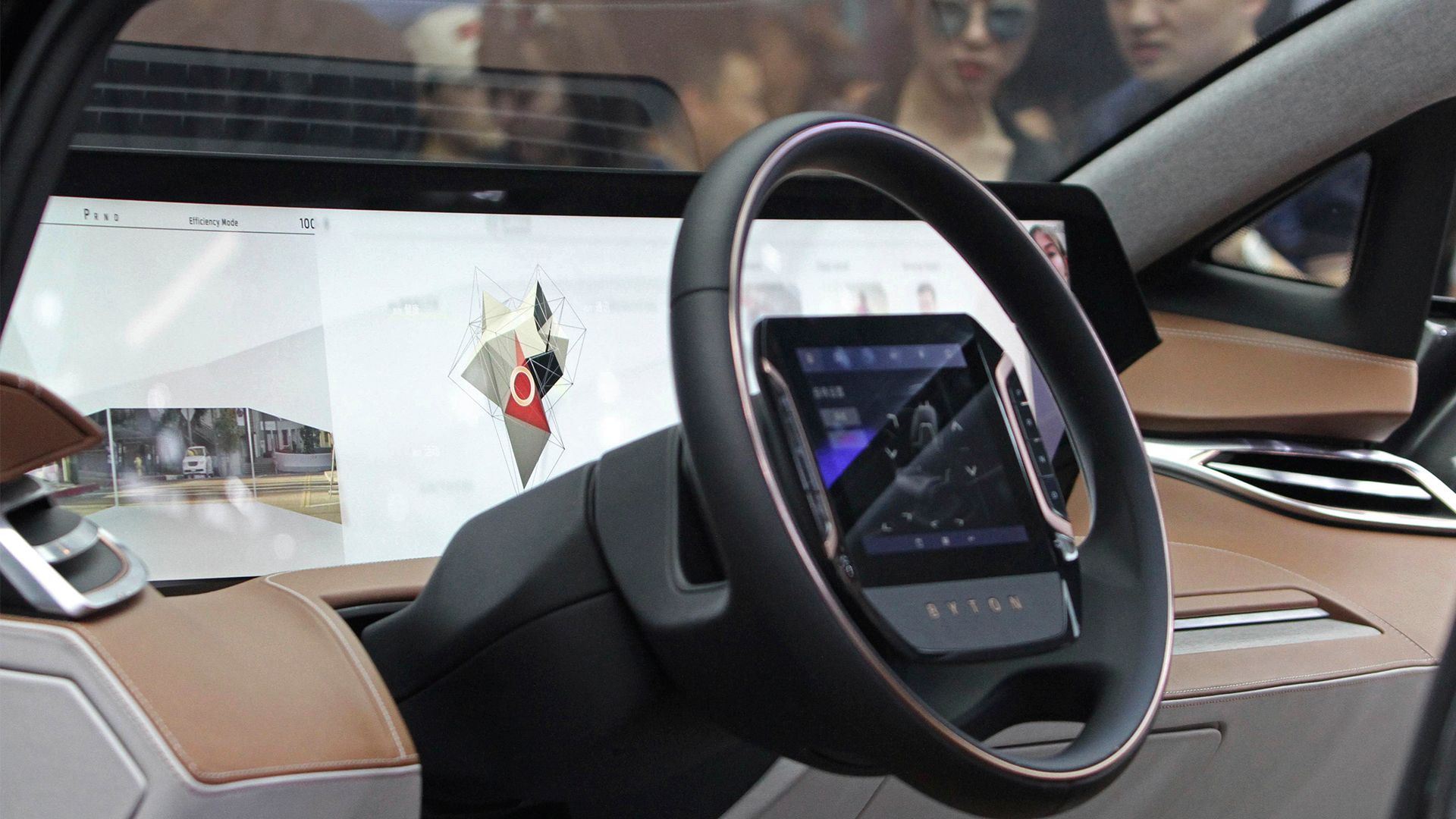

If there’s one thing that’s most prevalent at the 2018 Los Angeles Auto Show, it’s technology. Many automakers have brought a plethora of future offerings which showcase their forthcoming features to the iPhone generation, packed full of screens, voice recognition, and even the future of software-based driving technology. Let’s take a look at some of the hottest upcoming tech-trends we spotted at the L.a. Auto Show this year:
Screens. Everywhere.

As if the bright glowing screen of an iPhone wasn’t enough to distract drivers, automakers have opted to now place large displays in front of the driver. This new trend has been popularized following Tesla’s adoption as a status symbol, as the Model S and Model 3 both feature large displays as the keystone of their respective interiors. Couple style with the requirement of backup cameras in all new cars sold in the U.S. and the perfect storm has been born.
Some cars, like the Genesis G90, took a more modest approach and snuck the large infotainment screens into the flowing lines of the dashboard. Then you have luxury land-yachts like the all-new Lincoln Navigator which proudly display a large-format tablet protruding from the top of the dashboard. But, perhaps the most extreme case of screen-in-face we could imagine, is the Byton M-Byte (pictured above) which features a screen that measures 49 inches long and spans across the dash, plus a second display mounted on the steering wheel for extra real estate. The BMW Vision iNext followed suit and placed two very large displays on its dashboard as well.
Familiarity With Connected Devices

Familiar technology is rapidly integrating itself into mobility, shifting its focus toward the road rather than solely in your home or pocket. That’s why a heavy focus of the 2018 L.A. Auto Show has been the synchrony between technology used in everyday life, like a cell phone, and the automobile.
Volvo expanded on its use of native Android support. Earlier this year, the automaker noted that it looped Google in on the development of its new infotainment platform, meaning that its cars will run Android natively, which includes integration with the Google Play store. The Renault-Nissan-Mitsubishi alliance made a similar decision in September.
Amazon is even pushing the use of its conversational AI system, Alexa, in cars. For those with an Echo ecosystem at home, it will be second nature to have Alexa usher a playlist or add groceries to a shopping list using only their voice.
Software-Based Driving

Software-Based Driving solutions are becoming more commonplace than ever. With several iterations already on the market like Tesla’s Autopilot and GM’s Super Cruise, the technology is beginning to be explored by other automakers. Most concept cars at the L.A. Auto Show noted that they featured some form of driver assistance or autonomy, showing that the auto industry is moving in that direction whether consumers are ready or not. At this point, it’s becoming a race to the finish line for manufacturers.
Automakers also held sessions where they spoke on overcoming future hurdles to implement more software-based driving solutions, including preparing more connected highway systems and preparing for the shift it will cause in personal mobility. Volvo was likely the automaker showing the most enthusiasm about its software-driven future, highlighting its advanced LiDAR imaging products alongside technology partners Luminar. BMW explored the future of autonomy with its Vision iNext; although conceptual, the automaker’s development chief, Klaus Frohlich, approached the future of self-driving vehicles as a time saver for drivers
Car Sharing and Automobility

Will you give up car ownership in your lifetime? Most people will answer “no,” but many of the automakers who attended the L.A. Auto Show are betting against that answer. With congestion running rampant in city centers and ownership models moving in a direction that more aligns with mobility services, analysts believe that the effects of an industry shift will be felt in the next two decades.
Volvo, for example, made a statement by not bringing any cars to the auto show. Instead, company President and CEO Hakan Samuelsson said, “If somebody asks us three years in the future what our mission is we will not answer ‘to develop and build and sell cars.’ It is to provide the freedom to move in a personal, safe and sustainable way.”
Meanwhile, Byton chimed in on its future as well, denouncing cars as means for simple transportation between two points and explaining that the company envisions vehicles to be used for selling digital content to consumers. “Our business model is not selling cars. This is a platform for selling digital content. And eventually we will sell mobility miles.” said Carsten Breitfeld, Byton’s CEO.
Electric Cars Are the Future

One thing you absolutely can’t miss is just how many cars are receiving an electrified treatment. It’s undeniable that the industry is shifting to electric cars, and automakers are certainly taking the opportunity to flex just what’s coming down the pike.
Some new cars, like startup Rivian’s R1S (pictured above) SUV and RT1 pickup truck, are clear targets for the electric automobile market, but land squarely in an area which Tesla isn’t currently occupying. The beautiful Audi E-Tron GT, which is built on the same platform as the Porsche Taycan, was teased as well, showing off just how quickly mainstream automakers are moving in towards electrification. Even Kia squeezed in to show off the Soul EV, a moderately priced, aggressively styled city car that gets up to 300 miles of range on a charge.